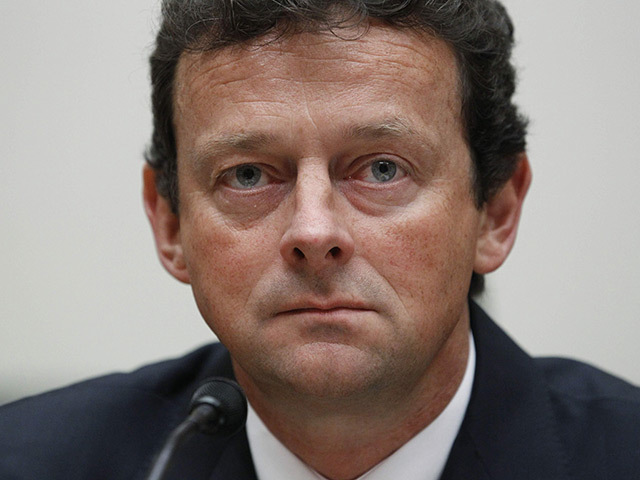
Tony Hayward faced a mini shareholder revolt and a barrage of questions about company ethics at Glencore Xstrata’s AGM yesterday.
The former BP boss’s re-election as chairman – a post which he was only confirmed in last month – was opposed by nearly 6% of those who voted in London.
He also had to answer uncomfortable questions about the firm’s ethical behaviour in the poor countries in which operates, such as Columbia.
However, he did confirm that the company plans to appoint a female board member by the end of the year and rid itself of the dubious distinction of being the only British blue-chip company with an all-male board.
He came under fire from some investors over its apparent failure to embrace the recommendations of a 2011 government report into the lack of diversity at the top of Britain’s leading companies.
The British government’s 2011 Davies Review set a target for all companies in the FTSE 100 index to have a quarter of their board positions held by women by 2015, stating that “inclusive and diverse boards are more likely to be effective boards, better able to understand their customers and stakeholders and to benefit from fresh perspectives, new ideas, vigorous challenge and broad experience”.
Though the review stopped short of advocating enforced quotas, the percentage of women board members at FTSE 100 companies had risen to 20.7% by March this year, from 12.5% in 2011.
“Glencore values and promotes diversity across its business. The appointment of a female board member would be a key sign of that commitment to this area,” Mr Hayward said yesterday.
Mr Hayward was chief executive of BP from 2007 to 2010, having joined the UK oil giant in 1982 as a rig geologist in Aberdeen.
He was at the helm of BP around the time of the catastrophic Deepwater Horizon blowout in the Gulf of Mexico, famously telling reporters at the height of the crisis in 2010 “I would like my life back”.
After quitting BP in the wake of the disaster, he claimed he had been “demonised and vilified”.
Oil giant Shell also had its AGM yesterday, where the firm confirmed it will hold on to its refining business despite shedding many underperforming downstream assets
The global refining sector has suffered over the past year from weak profit margins due to rising capacity and increasing competition and Shell’s downstream business has been a drag on its 2013 and first quarter 2014 results.
But boss Ben van Beurden said despite “unacceptable” returns the unit nonetheless benefited Shell’s overall performance.
Earlier this year, Shell announced it was divesting refining and marketing businesses in Australia, Italy, Denmark and Norway.
Recommended for you
